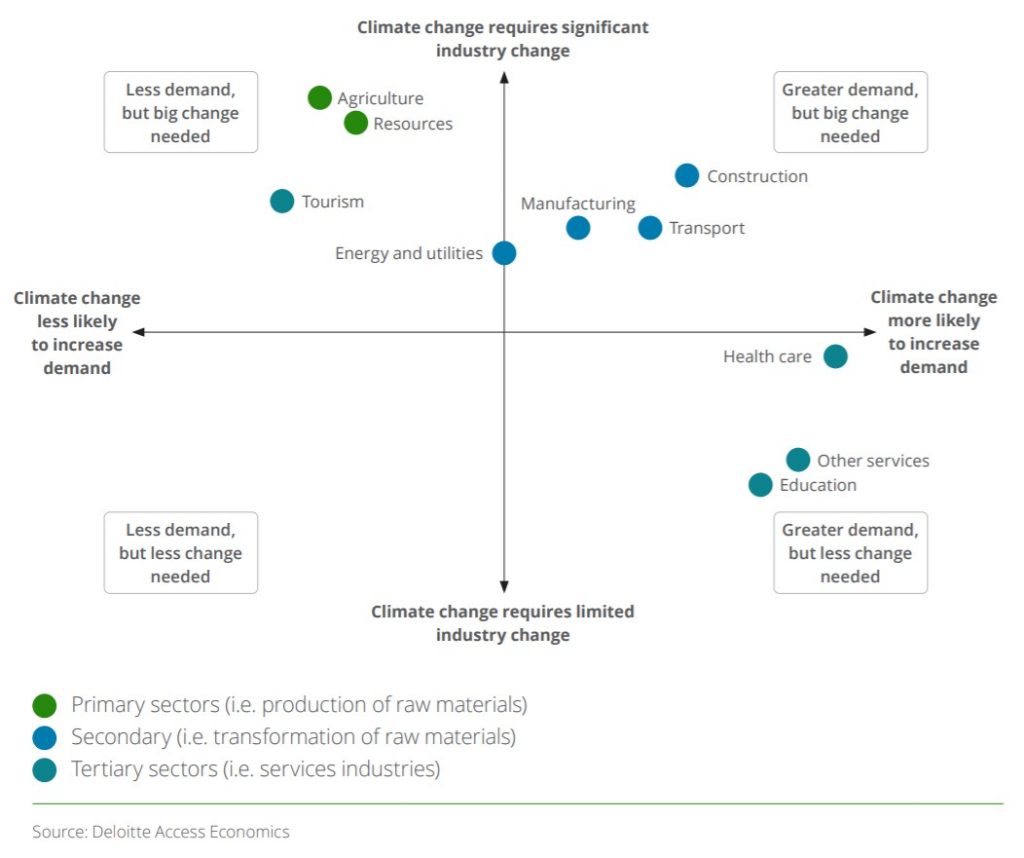Deloitte Access Economics’ report, called A new choice: Australia’s climate for growth, found Australia is primed for an economic contraction of 6 per cent and $3.4 trillion in lost GDP by 2070 if the worsening effects of climate change remain unchecked.
Deloitte Access Economics has constructed a view of the Australian economy where the physical damages to the environment cause damage to the Australian economy if there is inaction, or mis-action,  in preventing climate change.
in preventing climate change.
The analysis shows that the Australian industries hardest hit by the COVID-19 pandemic, are also the most vulnerable to the effects of a warming world and climate change. Australia’s agriculture, construction, manufacturing, tourism related industries and mining sectors all feature consistently in the top industries exposed to the risks of Covid, climate change and unplanned economic transition as the world responds.
Deloitte Access Economics estimates that the top six industries:
• Hit by Covid – in looking at weekly ABS payroll data – represent 32% of all employed people in Australia.
• Most exposed to the physical damages from climate change today, represent 46% of all employed workers.
• Most emissions intensive in their output represent 23% of all employed Australians.
Australia’s emissions intensive industries are vulnerable to disruption as the rest of the world changes – the world may not want what Australia has to offer. Taken today, on average, Deloitte Access Economics estimates that over 30% of employed Australians are exposed to economic disruption and risk from Covid, climate change and unplanned economic transition as the world responds.
While this is a significant number of jobs and growth at risk – enough to drive recessions – it is not all doom and gloom. The good news is that the remaining 70% of the workforce and Australia’s GDP is able to help create the change and a new economic trajectory for Australia in a post-Covid world.
Australia’s climate and geography, its decentralised collection of regional economies and proportion of national income generated by natural resources, are fundamental economic strengths. However, these strengths are also what expose Australia to the economic impacts of the physical risks of climate change.
While it is impossible to fully predict the effects of a changing climate on Australia, scientists have clearly established that Australia is highly exposed to just about all of the climatic risks that arise from a warming world: the research is conclusive in saying that warmer and more tropical climates are more likely to feel the effects of climate change.
